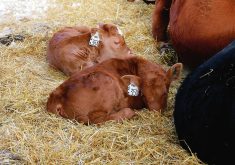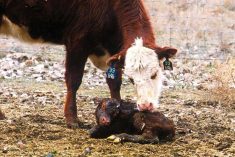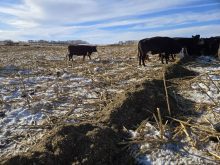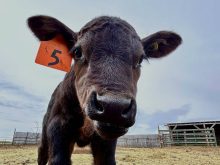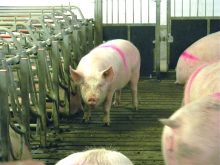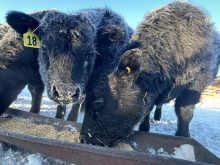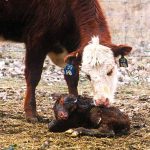Most people love a good burger or pork chop, but they don’t think about the science or research involved with meat. Fortunately, there’s a group of people who do.
And starting this fall, students who want to become experts in “the science of meat” will be able to enrol for a graduate degree in the subject at the University of Alberta. The new meat science graduate program is the first of its kind in Canada — but there’s already a huge demand for experts in this area.
Read Also
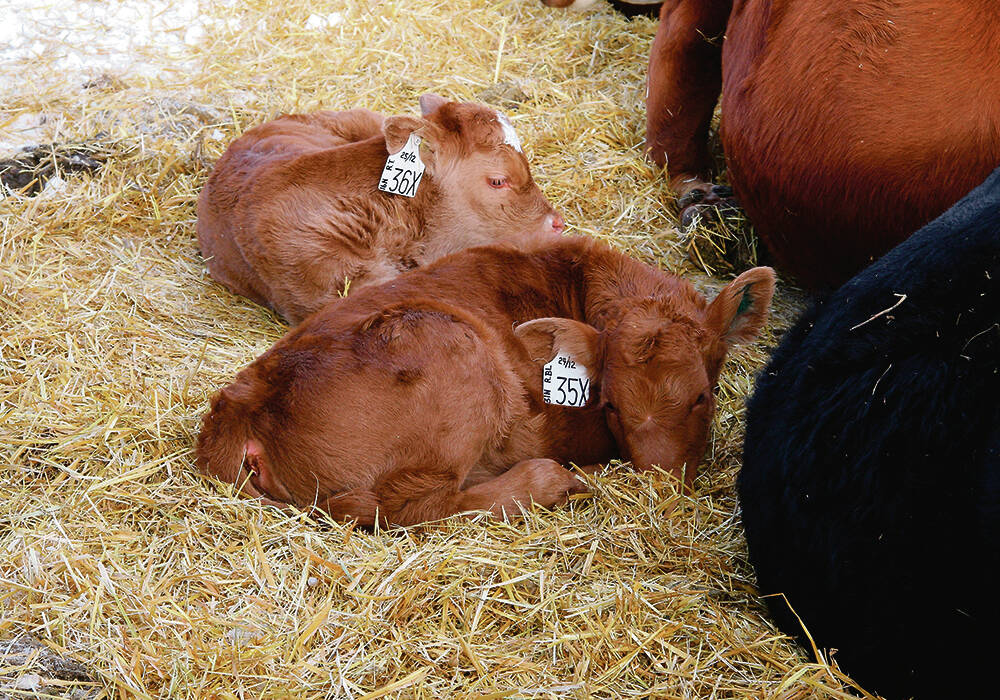
Biosecurity during calving: What’s your farm’s risk?
Cow-calf producers in Western Canada should have a well-designed plan for winter confinement period to reduce disease risks to herd.
“Most of the time, students are hired very quickly, as soon as they graduate,” said Heather Bruce, associate professor of carcass and meat science at the university and director of the Canadian Meat Education and Training Network (MEaTnet).
“I’ve had two — one was hired before he graduated and the other was hired three days after she graduated. That’s the kind of demand that’s out there.”
And the opportunities don’t stop there.
“The meat industry has been mentioning and foreshadowing that it’s going to have a lot of retirements in the next little while, particularly in the middle management and supervisory area,” said Bruce, who has experience in both industry and academia.
- More from the Alberta Farmer Express: U of A at forefront of effort to create super-kibble
These retirees have built up an enormous amount of experience over the course of 15 or 20 years, which is typical of how long it takes to gain expertise in the industry. By working with industry partners and providing increased training, the new graduate program will help bring people into middle management and supervisory roles after only five or six years of experience.
“We want to produce graduates who are professional and ready to be employees who can hit the ground running,” said Bruce. “That’s why this program is a very intensive program and we hope to take the best and the most hard working.”
The new program capitalizes on academic knowledge from the universities as well as Olds College expertise in teaching hands-on meat handling, cutting, and animal slaughter.
The master’s program is a two-year initiation into research and investigation while the PhD builds on a master’s and is more self-directed, with a supervisor acting as an adviser.
“Essentially, they get a dry run at research with the ability to make mistakes in a safe place,” said Bruce.
Students can choose to specialize in meat safety and microbiology, meat and muscle biochemistry, the economics of meat, or the science of meat processing.
The University of Alberta is home to the MEaTnet, a new virtual network linking it, Olds College, and universities of Saskatchewan, Guelph, and Laval. The group was formed by meat scientists who wanted to collaborate on research.
“We wanted to put together as complete a package as possible,” said Bruce. “With electronic communication now being so good and so easy, we’re really looking forward to putting this together and becoming a flagship for other organizations that are looking to deliver more information virtually, rather than just simply on the ground.”
Students will be able to access the program virtually through any of the participating universities, she added.
“We’ll probably share the course so it’s offered through each university, using each university’s electronic platform. Every university gets credit for it and every student gets credit for it at the university they’re attending.”
The Natural Sciences and Engineering Research Council of Canada provided $1.65 million in funding to create the program. The funding will also allow MEaTnet to build a platform for undergraduate students, as well as online courses for industry personnel who want to upgrade their qualifications without leaving the workplace.




